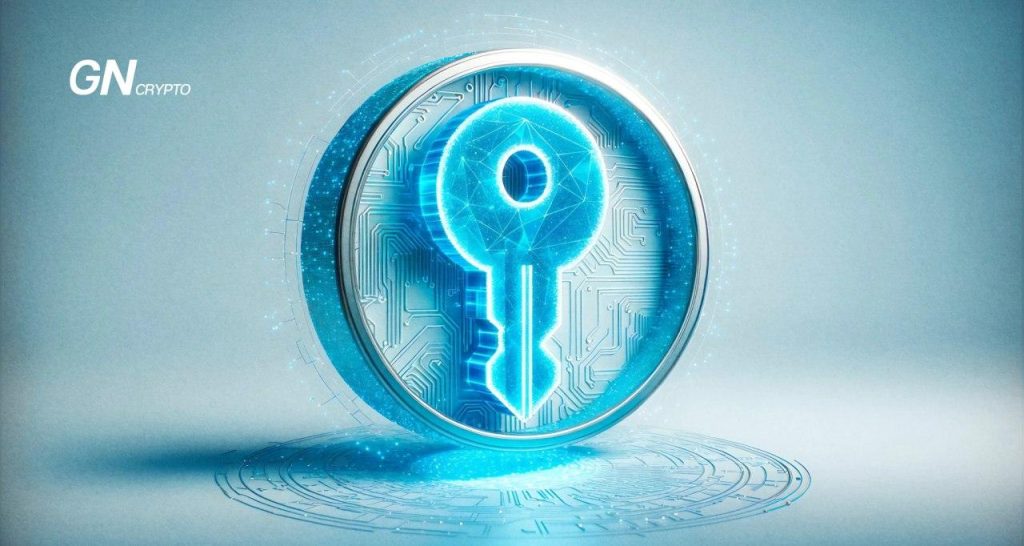What is a Private Key in Crypto and Why is It Important?

A private key is the cornerstone of cryptocurrency security. It provides the owner with full control over digital assets linked to a specific blockchain address. Here, we explain what a private key is, how it’s used, how it differs from a public key, and the essential steps to protect your assets.
On this page
With the rise of digital technology, cryptocurrencies are increasingly popular for storing and transferring funds. Most cryptocurrencies are built on blockchain technology, which uses specialized encryption to secure transactions and protect user privacy.
A private key is a unique digital code that grants the owner complete access to the cryptocurrency at a corresponding blockchain address. If you plan to engage with cryptocurrency, understanding the importance of private keys and how to store them securely is essential.
What is a Private Key?
A private key is a long, random string of characters that acts as a unique password for accessing a blockchain address. This key is essential for managing crypto assets, as it enables the owner to verify their ownership and control over funds. It is a critical component of security: losing or having a private key stolen can lead to complete loss of access to your assets. Whoever has access to the private key also has access to the funds.
The private key is essentially your access key to cryptocurrencies
How Does a Private Key Work?
When a user creates a cryptocurrency wallet, the system automatically generates a unique key pair: a private key and a public key. The private key is randomly generated and is linked to a public key, which can be shared with others to receive funds.
The public key serves as the address for receiving cryptocurrency, while the private key is used to verify and authorize transactions.
Although the private key generates the public key, the process is one-way. This means that sharing your public key with others is completely safe and does not expose your funds to risk.
What Does a Private Key Look Like?
A private key is typically a long string of random letters and numbers, making it nearly impossible to memorize or guess. For example, it might look like this:
m982cbb831d0dfdda77hf2c160c01y9252667d826581ff95c250ah6cabe4bda1
This sequence generally consists of 64 characters and is randomly generated using cryptographic algorithms. It’s essential to write down your private key and store it securely.
Private Key vs Public Key: What’s the Difference?
Private and public keys work together to provide security and privacy. The public key acts as an address where others can send funds.
For example, an Ethereum public key always starts with “0x” and might look like this:
0x0383708AnH7dfF66715c432F91553C3F45A18HcC
The private key, on the other hand, gives the owner full control over the funds associated with that address.
An Ethereum private key might look something like this:
5Kb8kLf9zgWJnogibDA79MzPL6TsZZY36l6vjzG5XMkmKUCW3eJ
You can think of the public key as a bank account number, which you can share to receive payments, while the private key is akin to the PIN or password that grants access to those funds. This setup secures assets on the blockchain and enables safe cryptocurrency transactions.
Just as not all information on your bank account is public, it’s crucial to keep your private keys confidential
Difference Between a Seed Phrase and a Private Key
A seed phrase is a sequence of random words (usually 12, 18, or 24) that allows you to recover access to your crypto wallet and all associated funds. Generated when you create a wallet, the seed phrase serves as a “backup key” for fully restoring your wallet on a different device if the original is lost or damaged.
The seed phrase provides access to all private keys associated with the wallet, enabling complete recovery. For example, with a seed phrase, you can restore access to all addresses created in the wallet, even if you lose the device or application.
It’s vital to keep your seed phrase stored securely, out of reach of others, as anyone with access to it can control your funds.
Imagine a large safe (the crypto wallet) with multiple compartments. This safe contains all your assets (cryptocurrencies).
A private key is like an individual key to each compartment in the safe. Each address or “compartment” has its own unique private key, granting access to that specific compartment’s funds. If someone has your private key, they can open that specific compartment and take the funds.
A seed phrase, however, is like a master key to the entire safe. With it, you can open all compartments at once. If you lose access to the wallet or device, the seed phrase enables you to recover everything, including all addresses and assets.
Related: How to Store and Secure Your Seed Phrase
How to Store a Private Key
Storing a private key requires special care, as losing it can lead to the permanent loss of your funds. Here are a few storage methods:
- Cold Storage: This method uses physical storage, such as paper wallets or hardware wallets that are not connected to the internet. Cold storage provides strong protection against hacking, but it’s crucial to physically secure it against theft or damage.
- Hot Storage: This method involves storing the private key in online wallets or apps, making it more accessible for quick transactions but also exposing it to hacking risks.
It’s essential to remember that losing your private key (for example, if it’s on paper and misplaced) will result in the irreversible loss of access to your cryptocurrency.
Why You Shouldn’t Lose Your Private Key
Decentralization is one of the major benefits of cryptocurrencies, but it also means that the responsibility for securing your assets rests entirely with you, the owner.
If a private key is lost, access to your funds cannot be restored. The private key grants complete control over your assets, so keeping it secure is a crucial part of owning cryptocurrency. Taking a responsible approach to key storage and personal data protection is essential, as losing access to your private key can lead to an irreversible loss of funds.
The content on The Coinomist is for informational purposes only and should not be interpreted as financial advice. While we strive to provide accurate and up-to-date information, we do not guarantee the accuracy, completeness, or reliability of any content. Neither we accept liability for any errors or omissions in the information provided or for any financial losses incurred as a result of relying on this information. Actions based on this content are at your own risk. Always do your own research and consult a professional. See our Terms, Privacy Policy, and Disclaimers for more details.



























